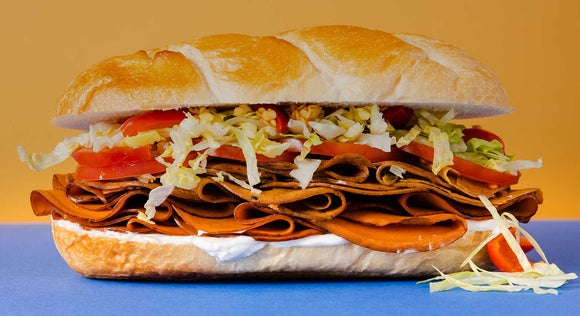
🌱 Fresh Perspectives: Decoding 'Best Before' & 'Use By' Dates to Save 🌍 & Wallets 💰
Amanda Teng
Hey there, lovely folks! 🌟
Today, I'm excited to chat about something truly close to our hearts – the incredible Eco-Savings Initiative. This gem of a project is not just about embracing the vegan lifestyle; it’s a giant leap towards reducing food wastage and saving those extra dollars. 🌱💰
Understanding Best-Before Dates: A Fresh Perspective 📆
In the bustling city of Singapore, many of us have grown accustomed to viewing best-before dates as the ultimate decider of a food product's fate. Cross the date, and into the bin it goes, right? This approach, however, leans on the side of extreme caution, treating all expiry dates with the same stern look. But, let’s pause and think – is food suddenly bad the day after the date marked? This mindset contributes to an astonishing amount of food wastage.
Singapore's cautious approach to food safety, treating best-before and expiry dates as almost interchangeable, has led to substantial food wastage. In 2022 alone, Singapore generated 813,000 tonnes of food waste, accounting for about 11% of the total waste generated, with only an 18% recycling rate (link). Despite efforts, a study by the Singapore Environment Council found that households throw away around 26,000 tonnes or S$342 million in unconsumed food annually (link). This not only strains our environment but also reflects a critical area where improvement is necessary to achieve sustainability.
Countries like the US, EU, UK, and Australia adopt a more nuanced stance, differentiating between ‘use-by’ (safety) and ‘best before’ (quality) dates. This differentiation significantly cuts down food waste, ensuring that perfectly good food isn't thrown away unnecessarily.
The discussion on 'best before' dates contributing to food waste in the EU underscores the potential benefits of reevaluating the need for such labels on long-life produce. Countries like the Netherlands, Sweden, Austria, Denmark, Germany, and Luxembourg have been pushing for changes to EU policies to either scrap 'best before' dates for products with a very long shelf life or to improve consumer understanding of durability dates. This initiative aims to tackle both the social and environmental dimensions of food waste, linking it closely to the principle that everyone has a right to adequate food. According to figures from the European Commission, up to 100 million tonnes of food are wasted in Europe each year, with poor understanding of 'best before' and 'use by' dates being a significant contributor to this issue (link).
This more evolved approach towards food safety dates not only has the potential to reduce food waste significantly but also helps in addressing the broader environmental and humanitarian implications of food wastage. By adopting practices that encourage the proper interpretation and application of 'use by' and 'best before' dates, countries can take a significant step towards sustainability and resource efficiency in the food supply chain.
A Table of Differences: Best-Before Vs. Use-By Dates 📊
Understanding the difference between use-by and best before dates in various countries can be a game-changer. Here’s a simplified view:
|
|
Use-By Date (Safety) |
Best-Before Date (Quality) |
Selling Past Best-Before |
Source |
|
AU |
Indicates food safety; not to be consumed past this date. |
Indicates peak quality; food still safe to eat past this date. |
Permitted |
|
|
UK |
Marks the last date for peak safety; food should not be consumed past this date. |
Indicates quality; food still safe but not at its best. |
Permitted |
|
|
US |
Not a safety date except for infant formula. "Best if Used By" suggests best flavor or quality. |
Same as Australia and UK; not a safety date. |
Permitted |
|
|
EU |
Indicates safety, should not be consumed past this date for safety reasons. |
Indicates quality, with food still being safe to eat after this date. |
Practices vary; efforts underway to reduce food waste linked to date marking. |
These countries recognize that food can remain safe and consumable past its best-before date, allowing for more flexibility in food consumption and sales, reducing waste significantly.
The Eco-Savings Initiative: Embracing Change 🌍
This year, we’re shaking things up with our Eco-Savings Initiative. It’s our bold commitment to reducing food wastage by making past-their-best-before products available, free of charge, to you, our cherished community members. After consulting with the Singapore Food Agency (SFA), we've been assured that distributing food without sale is not regulated, hence, not breaking any laws. However, it’s vital that anyone who takes these foods exercises common sense, inspecting the items for spoilage or damage, and consuming them at their own discretion.
Here’s the heart of our initiative:
- Our part: We commit to only offer products that we’d consume ourselves. We meticulously test these items for quality and signs of spoilage, focusing on products from countries that distinguish between best before and use-by dates. You can find these products in our online store in the clearance aisle, labeled 'free'.

- Your part: Our quality checks are based on our best judgment, so we encourage you to only take and consume these products within your own comfort levels. If you decide to partake in this initiative, we kindly ask for a small tip to help cover the costs of keeping this wonderful project going, including the shipping of these items to you.
A Little Goes a Long Way: The Heart of Tipping 💚
As we journey together in reducing food waste through our Eco-Savings Initiative, we invite you to partake in a tradition of gratitude and support – tipping. While the products we offer past their best-before dates are complimentary, your tips play a pivotal role in illuminating this pathway of change.
Why tip, you might wonder? Your generosity helps us cover the essential costs of this initiative – from keeping the lights on in our vegan haven to ensuring the smooth and sustainable delivery of food items right to your doorstep. Each tip, no matter the size, is a powerful gesture of appreciation for the effort and resources invested in bringing this vision to life.
But it’s more than just covering costs. Tipping us is a vote of confidence in a waste-reducing, earth-loving movement. It's about being part of a community that values sustainability, cares for the environment, and supports each other in making conscientious choices.
We understand that the beauty of this initiative lies in its voluntary nature. Participate in a way that feels right for you. Whether it's through tipping, spreading the word, or simply being a mindful consumer, your involvement makes a difference.
Let's continue to nurture this beautiful community we are creating together. Your support ensures the longevity and success of our mission to make food consumption more vegan and more sustainable.
JOIN US: FIGHT Food Wastage 🌿💸
Food wastage is an unavoidable element of the grocery and F&B sectors, driven by overproduction, spoilage, and strict interpretations of food safety dates. While some level of wastage is inevitable due to the complexities of food distribution, storage, and varying consumer demand, we believe that by adopting better storage practices, improving supply chain efficiency, and reevaluating our approach to food safety dates, we can significantly reduce this wastage. Join us on this mission to shift perspectives and practices around food safety dates. Together, we can make a difference, one best-before date at a time. 🌟
Love and Light,
Amanda, 🌈



